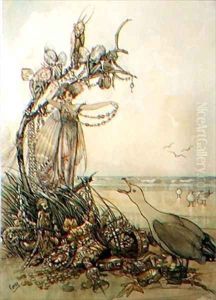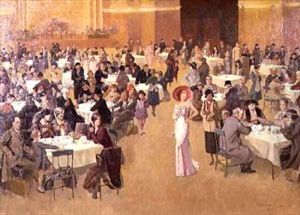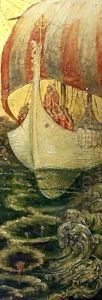Andreas Duncan Carse Paintings
Andreas Duncan Carse was a British painter, born in 1786. While not as universally recognized as some of his contemporaries, Carse carved out a unique space for himself in the art world of the 19th century. His life and career encapsulate the vibrancy and evolving nature of British art during this period, reflecting the broader shifts in society and culture.
Carse was known primarily for his genre paintings, scenes depicting everyday life with a keen eye for detail and a profound sense of empathy for his subjects. These works often highlighted the customs, festivities, and intimate moments of British life, presenting a window into the era's social fabric. His ability to capture the essence of his time, with a particular focus on the nuances of human interactions and the subtleties of social norms, made his paintings resonate with contemporaries.
Throughout his career, Carse remained somewhat peripheral to the mainstream art movements of his time, such as Romanticism, which dominated the early 19th century. Instead, he developed a distinctive style that, while influenced by the prevailing tastes and trends, retained a unique sense of personal expression and technical precision. His paintings are characterized by their meticulous detail, vibrant colors, and the often subtle but poignant portrayal of his subjects.
Despite the relative obscurity he faced during his lifetime and the years following his death in 1848, Andreas Duncan Carse's contributions to British art have gained more recognition in recent years. Scholars and enthusiasts alike have come to appreciate his keen observations of British society, his technical skill, and his ability to convey the depth of human emotion. His works are now considered valuable for their historical significance as well as their artistic merit, offering insights into the cultural and social dynamics of 19th-century Britain.


